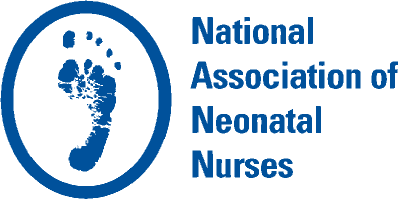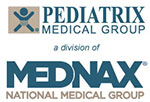Feature
To Infinity and Beyond: Promoting Confidence and Competence Post-Discharge
Tosha Harris, DNP, NNP-BC
Historically, care provided to preterm and critically ill neonates has focused on attaining physiological well-being and reducing or preventing long-term sequela. Gestational age, diagnosis, and co-morbidities play a significant role in an infant’s length of stay in a neonatal intensive care unit (NICU). Parents of infants in the NICU experience both positive and negative emotions, including stress, fear, and anxiety, during their child’s hospitalization. One could assume parents would view discharge from the NICU as a welcome escape, but research has shown that discharge from the safety of the NICU, and the watchful eyes of healthcare providers, actually can be physically, mentally, and psychologically taxing for parents and the family as a unit. As the transition from the safety and security of the NICU to the insecurity and uncertainty of home progresses, parents commonly experience feelings of doubt, fear of responsibility, fear of failure, and isolation. Parents of preterm infants, especially mothers, have a higher incidence of depression and anxiety at discharge than parents of full-term infants (Howe, Sheu, Wang, & Hsu, 2014).
Providers who utilize a trauma-informed approach to care recognize an admission and subsequent stay in the NICU is a traumatic life event that can have lasting adverse effects on not just the infant’s, but also the family’s biological, psychological, social, and spiritual well-being and quality of life. Interventions to mitigate these factors begin with the provider’s assessment of the infant’s and the family’s readiness for discharge (Coughlin, 2014; Substance Abuse and Mental Health Services Administration, 2014). The discharge assessment plays a vital role in the success or failure of the transition from hospital to home. This is especially true for high-risk infants, who are identified by the American Academy of Pediatrics (AAP) as infants who are preterm, medically complex or technology dependent, residing in families with psychosocial issues, and terminally ill (AAP, 2008). Established guidelines for these infants can help clinicians create a timeline for discharge and plan and coordinate post-discharge care. At the time of discharge, parents should be able to accurately convey the details of the neonate’s underlying medical condition to other family members, caregivers, or medical personnel. Parents’ competency in primary infant care, general safety measures, and any necessary special procedures also should be documented prior to discharge. Safety measures related to infant feedings, medications, or equipment and the signs and symptoms of physiological changes not associated with the infant’s baseline health should be integral topics of discharge education. In addition, all parents should be proficient in basic cardiopulmonary resuscitation before discharge (AAP, 2008). Although these generalities form the basis of discharge planning, preparation for discharge also must be individualized to meet the specific needs of the infant and family. The discharge of a family unit with special healthcare needs requires time, dedication, and a commitment to the post-discharge health of the NICU infant and family. Commercial and unit-based discharge programs may not provide adequate anticipatory guidance regarding the family unit’s home life after discharge from the NICU.
In addition, discharge education should include information regarding the preterm infants’ growth and development, including delayed milestone achievement; temperament; and oral-motor skills as well as information about parental post-traumatic stress and depression and resources for support. Adequate preparation of parents well in advance of the day of discharge readies them to assume care of their infant and be partners in the successful transition to home care. Educating parents on what to expect after their infant is discharged from the NICU empowers them to develop better coping skills, as per Karbandi, Momenizadeh, Hydarzadeh, Mazlom, and Hasanzadeh (as cited in Neyestani, Saeidi, Salari, & Karbandi, 2017) boosts their confidence levels, promotes infant-parent bonding, and improves the family’s overall quality of life (Melynk et al., 2006; Neyestani et al., 2017). According to Purdy, Craig, and Zeanah (2015), post-discharge infant growth is a reliable indicator of the infant’s psychosocial environment and the health of the parent-infant relationship.
Deficits in parents’ readiness for and knowledge about the discharge process and life after discharge from the NICU can result in increased risk, more emergency room visits, a greater chance for hospital readmission, and increased primary care utilization (Smith, Hwang, Dukhovny, Young, & Pursley, 2013). Preterm birth and parental mental health issues have been associated with higher incidences of family dysfunction and burden up to 2 years following discharge from the NICU (Treyvaud, 2014). Parental knowledge deficits also can result in unrealistic expectations of the infant’s medical condition, prognosis, and subsequent growth and development. Unrealistic expectations may lead to feelings of anger, grief, guilt, and frustration, negatively affecting the infant-parent relationship.
Preventing these negative associations and damage to the parent-child relationship rests with the NICU care team. The team should use evidence-based guidelines and a collaborative approach for preparing infants and families for discharge from the NICU. The care team can help lessen the burden of families in crisis by ensuring continuity of care for these families; offering in- and outpatient case management and comprehensive discharge teaching; providing access to facility- and community-based transitional programs and in-home care providers; and ensuring family attendance at transitional programs and follow-up care appointments (Boykava, Kenner, & Ellerbee, 2014). Focusing on the parents’ knowledge and skill level, their competency, and their confidence in providing at-home care, as well as on providing anticipatory guidance in infant psychosocial development, will strengthen parents’ faith in themselves as caregivers (Boykava et al., 2014). The time and effort the care team puts forth before discharge can have one significant payoff: namely, improved patient outcomes in the weeks, months, and years following discharge.
References
American Academy of Pediatrics Committee on Fetus and Newborn (2008). Hospital discharge of the high-risk neonate. Pediatrics, 122(5), 1119–1126. doi: 10.1542/peds.2008-2174
Boykova, M., Kenner, C., & Ellerbee, S. (2014). Postdischarge care of the newborn, infant, and families. In C. Kenner & J. W. Lott (Eds.), Comprehensive neonatal nursing (5th ed., pp. 783–808).
Coughlin, M. (2014). Transformative nursing in the NICU: Trauma-informed age-appropriate care. New York, NY: Springer Publishing Company.
Howe, T., Sheu, C., Wang, T., & Hsu, Y. (2014). Parenting stress in families with very low birth weight preterm infants in early infancy. Research in Developmental Disabilities, 35(7), 1748–1756. doi: 10.1016/j.ridd.2014.02.015
Melnyk, B. M., Feinstein, N. F., Alpert-Gillis, L., Fairbanks, E., Crean, H. F., Sinkin, R. A., . . . Gross, S. J. (2006). Reducing premature infants’ length of stay and improving parents’ mental health outcomes with the Creating opportunities for Parent Empowerment (COPE) neonatal intensive care unit program: A randomized, controlled trial. Pediatrics, 118(5), e1414–e1427. doi: 10.1542/peds.2005-2580
Neyestani, A., Saeidi, R., Salari, M., & Karbandi, S. (2017). The effect of implementing a discharge program on quality of life of mother with premature infants. Journal of Evidence-Based Care, 7(1), 60–71. doi: 10.22038/ebcj.2017.21095.1482
Purdy, I. B., Craig, J. W., & Zeanah, P. (2015). NICU discharge planning and beyond: Recommendations for parent psychosocial support. Journal of Perinatology, 35, 24-28. doi:10.1038/jp.2015.146
Smith, V. C., Hwang, S. S., Dukhovny, D., Young, S., & Pursley, D. M. (2013). Neonatal intensive care unit discharge preparation, family readiness and infant outcomes: Connecting the dots. Journal of Perinatology, 33(6), 415–421. doi: 10.1038/jp.2013.23
Substance Abuse and Mental Health Services Administration. (2014). SAMHSA’s concept of trauma and guidance for a trauma-informed approach. (HHS Publication No. [SMA] 14-4884). Rockville, MD: Substance Abuse and Mental Health Services Administration
Treyvaud, K. (2014). Parent and family outcomes following very preterm or very low birth weight birth: A review. Seminars in Fetal and Neonatal Medicine, 19(2), 131–135. doi: 10.1016/j.siny.2013.10.008


